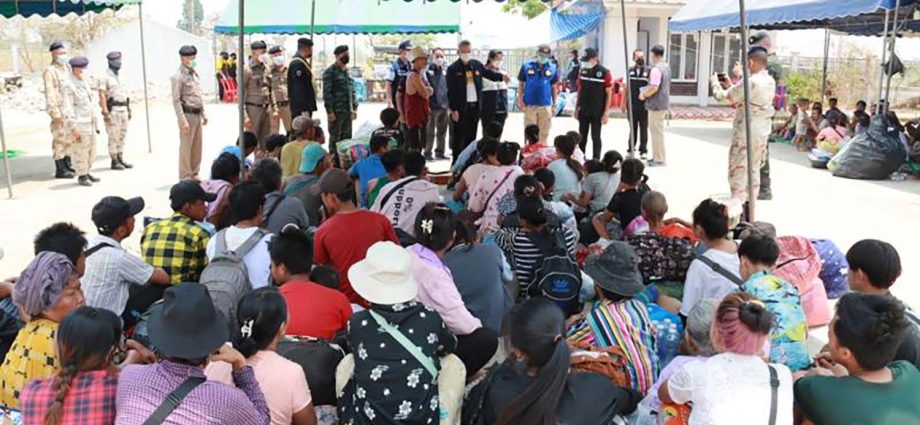Peace push to follow help for vulnerable

The government is considering providing widespread humanitarian assistance to support vulnerable populations in Myanmar and hosting talks with the Myanmar leader and ethnic minority groups to find a solution to the crisis in the country, according to a military source with knowledge of the plan.
Prime Minister Srettha Thavisin has held talks with Foreign Minister Parnpree Bahiddha-nukara and the armed forces leaders about the ongoing conflict in the neighbouring country, which is likely to have significant repercussions for Thailand if it is prolonged, said the source.
As its neighbour, Thailand, under Mr Srettha’s leadership, is considering taking action through the Asean Five-Point Consensus (5PC) by sending humanitarian aid to vulnerable populations there, according to the source.
A few months after the military overthrew an elected government in February 2021, Asean proposed the 5PC to Myanmar’s junta, but it received no positive response amid fighting between the State Administrative Council (SAC) and various resistance groups.
“The Thai government via the Foreign Ministry will coordinate with the Myanmar government in assisting vulnerable populations while the military will provide necessary support,” the source told the Bangkok Post.
In late December, Mr Parnpree said the ministry was considering setting up a centre along the Thai-Myanmar border to provide humanitarian assistance for Myanmar refugees desperate to escape internal fighting between junta forces and insurgent ethnic minority groups.
According to Mr Parnpree, Myanmar has yet to send a working team to meet with the ministry in Thailand, which had been expected to discuss the details of the new centre that would also serve as a channel for transport, medication and food for those affected by the fighting inside Myanmar.
Anekchai Rueangrattanakorn, Silpakorn University Adjunct lecturer in Political Science, welcomed the Foreign Ministry’s move to provide humanitarian assistance to those who have been affected by the Myanmar crisis.
“As an Asean member, the Thai government can use this opportunity to show that while its stance is firmly in favour of sovereignty and non-interference principles, it will not neglect or ignore the crisis and human rights violations in neighbouring countries either,” he said.
He suggested that aside from processing humanitarian assistance through the Foreign Ministry, the government could process it through the military of both countries.
“If Thailand ignores this issue, it will not only be watching people dying, but it will also lead to larger challenges, such as human trafficking, illegal immigration, and the further spread of Covid-19, as a result,” he said.
Panitan Wattanayagorn, a security and international relations expert and former lecturer at Chulalongkorn University, said humanitarian assistance is one aspect of the five-point consensus that Thailand has been pushing, but there has been no progress, especially in establishing a safe zone to deliver the aid.
He said there have been many international attempts, including by China, to help in ceasefire negotiations and open a humanitarian corridor for other nations to help deliver aid.
If what China’s Foreign Ministry has said is true, Thailand could take this opportunity to offer humanitarian assistance to Myanmar, he noted.
“Thailand could use the Asean mechanism it has in Singapore as a humanitarian front, while a ceasefire agreement gives us access to areas controlled by ethnic groups who may not otherwise open their gates,” he said.
In November last year, Asean issued an Asean Foreign Ministers’ Statement on the Escalation of Conflicts in the Northern Shan State.
They urged Myanmar authorities and relevant parties to provide urgent humanitarian assistance and ensure the rapid and safe passage of stranded foreign nationals out of the country while reaffirming a commitment to finding a peaceful and durable solution to the crisis through the implementation of the Five-Point Consensus.

